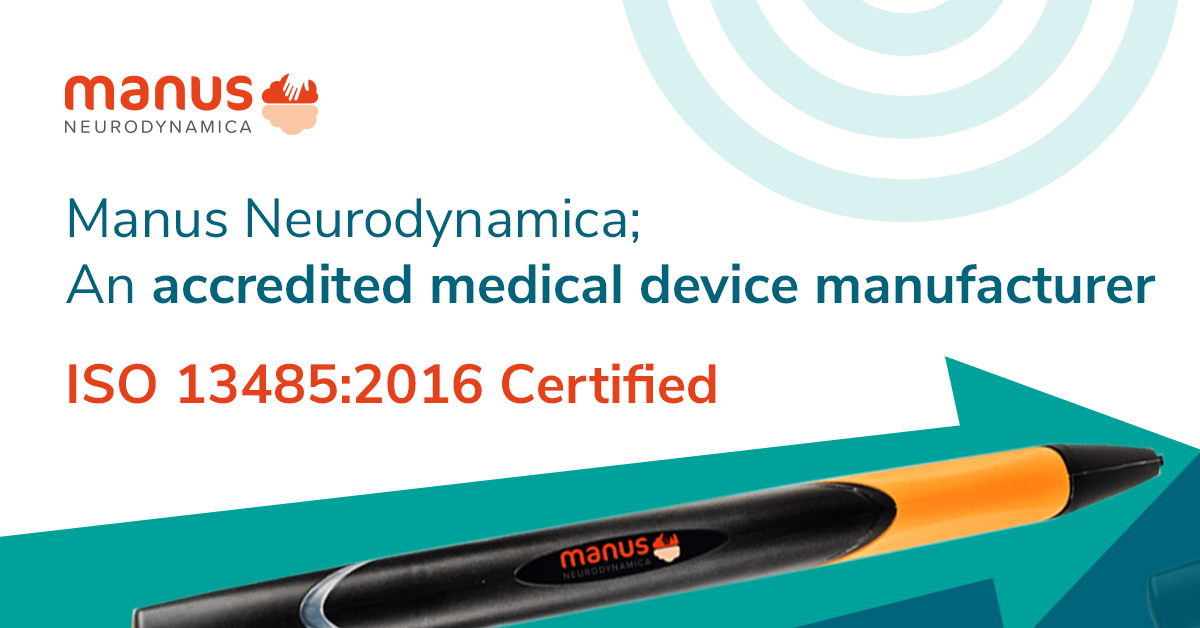The company underwent its third notified body (BSI) assessment in December last year. This resulted in a positive recommendation by the auditor for ISO13485 (medical device) QMS certification by BSI. We have our certificate on the wall!
This accreditation and registration as a medical device manufacturer are a significant milestone in the development of the Company. It is a validation of the product as well as the organisation and its management procedures implemented and followed in everyday practice. It confirms that these internal processes as well as the formalised relationships with the external world, including suppliers and clients and regulators are meeting the regulatory standards.
In essence, the QMS system defines a positive and self-organising culture. This is a solid foundation for launch into the clinical markets that enables commercial growth in those markets. The certification makes Manus medical device company with significant advantages over health companies, whose tech offering are not medical devices.
Some of the aspects covered in the QMS system are:
- Defined (SMART) quality objectives
- Approved work environment and infrastructure (Alva street)
- Human resources and training
- Selection of suppliers and quality agreements with critical suppliers (Stabilo) with audit plans
- Traceability
- Purchasing procedures
- Financial record keeping
- Manufacturing
- Product release procedures
- Product technical file review:
- Requirement analysis
- Design & development
- Validation and verification testing
- Clinical evaluation
- Labelling and packaging
- IEC 62304 software development implementation for medical devices
- IEC 62366 usability engineering application with a human factor study
- ISO 14971 Application of risk management
- Corrective and preventive actions
- Document control
- Post-market surveillance
- Management reviews
There is a natural sequence to the events that need to take place when taking a medical device to market and developing the organisation to support the launch and post-launch activities. Essential roles have to be fulfilled by the organisation and team members have to be appointed and trained to the relevant procedures and standards. Moreover, due to the risk-based approach in Europe, launching a product too early, can make it virtually impossible to retrospectively implement quality procedures and develop a quality culture and obtain the accreditation.
Now that all of the above essential work has been completed to allow future smooth operations, the Company can fully emerge commercial activities. More specifically, the stage of development enables the following for the first time:
- Engaging with the NHS and its purchasing hubs. Our launch plan for the UK (NHS) is being prepared.
- More easily entering discussions with reputable distributors and strategic partners

